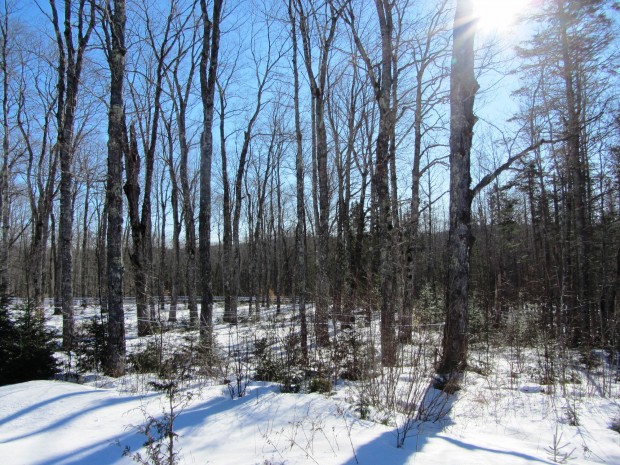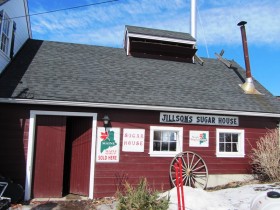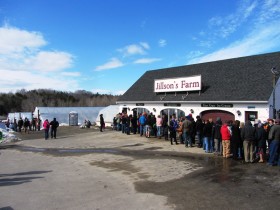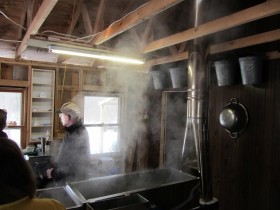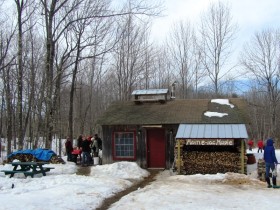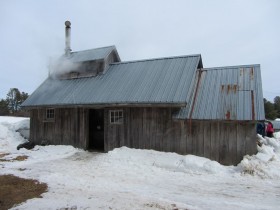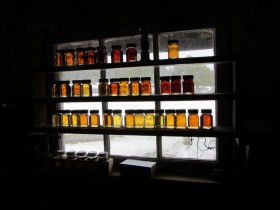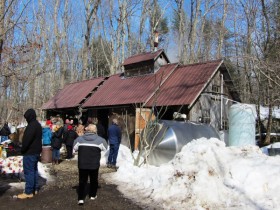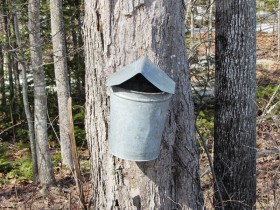The Maine Maple Produces Association has nearly 200 sugarhouse members. Maine Maple Sunday is always the fourth Sunday in March, although some sugarhouses offer events (maple syrup samples and demonstrations on how the syrup is made) on both Saturday and Sunday. Many farms offer games, activities, treats, sugarbush tours, music, and more.
The State of Maine, as part of its agriculture regulations, has developed standards for grading maple syrup. They measure flavor, cleanliness, cloudiness, and color. The official definitions of maple sugar and maple syrup appear in the glossary.
In addition to Bowdoin, Bowdoinham, Greene, Richmond, Sabattus and Woolwich, an extensive maple sugar harvesting operation, using tubing leading directly to a shed for storage or processing, is visible along Route 6 in Carroll.
Pennamaquan Lake is located in Charlotte in Washington County. According to Eckstorm, the Indian word Pennamaquan in its various forms essentially refers to a maple ridge as a source for maple syrup.
In 2017, Maine lost a bid to buy a $1.2 million conservation easement to protect a remote plantation of sugar maples in Somerset County. The 23,600-acre approve the project focused on the timberland’s maple syrup production, said to account for roughly 20 percent of the state’s total output.
But Maine Public found that most of the syrup produced there is never sold in Maine, but to out-of-state wholesalers who market it as a product of the U.S. Also, the maple syrup operation is done exclusively by Canadian producers who have easy access to the property, and in some instances have harvested sap there for generations.
Subsidizing Canadian syrup production was a problem for several LMF board members. So was the fact that accessing Big Six typically requires two border crossings and using a network of logging roads in Maine’s North Woods, all of them are private, with no legal guarantee that the public can use them.
Subsidizing Canadian syrup production was a problem for several LMF board members. So was the fact that accessing Big Six typically requires two border crossings and using a network of logging roads in Maine’s North Woods, all of them are private, with no legal guarantee that the public can use them.
From a Maine Public Report By Steve Mistler
Published November 9, 2017
See full report: https://www.mainepublic.org/politicsproject in Big Six Township in northern Somerset County, was competing with other funding requests from the Land for Maine’s Future program, LMF.
Also in Somerset County a Passamaquoddy tribe in Jackman continue their tradition with maple sugar. As noted in their on-line presence: [https://www.passamaquoddymaple.com/] “Harvesting Maple Syrup reaches far back to our early ancestral roots. While our methods have evolved, the desire for the Passamaquoddy people to be with nature has not. We are 100% tribally owned, with a mission to produce a high-end, small batch, product that will not only sustains our tribal land, but also create jobs for our people. We hope you enjoy Passamaquoddy Maple Syrup.”
‘
More Videos!
Additional resources
Eckstorm, Fannie Hardy. Indian Place Names of the Penobscot Valley and the Maine Coast.
Nearing Helen and Scott. The Maple Sugar Book. White River Junction, VT. Chelsea Green Publishing. 2000. (original publication 1950)


